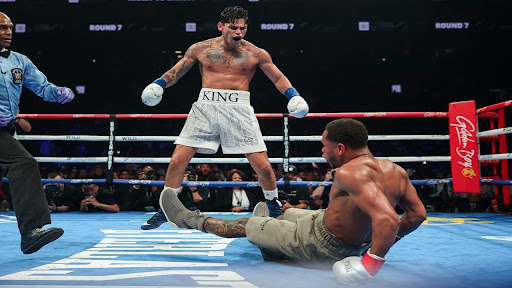When a student thinks of the popular icons of the past they may think of people like Marlon Brando, Muhammad Ali, and Malcom X. But in the 1970’s a chess player named Bobby Fischer had perhaps the biggest impact on American pop culture and international relations of his time. He’s been described as the Mozart of chess, with his tactics constantly discussed by chess enthusiastics. Unfortunately issues with paranoia, anti-Semitism, and a strong opposition to income tax, eventually made him out to be a despised villain rather than a cultural icon.
The most recent attempt at documenting Bobby Fischer’s rise and downfall is the new book Endgame: Bobby Fischer’s Remarkable Rise and Fall- from America’s Brightest Prodigy to the Edge of Madness written by St. John’s University Professor, Dr. Frank Brady. Brady spent countless hours researching Fischer’s life, including the retrieval of files from the FBI under the Freedom of Information Act.
Dr. Brady was able to input a personal view of Fischer in his book. As an international chess arbiter, Brady was able to officiate many of Fischer’s games. He spent personal time with him dining in Manhattan and playing several chess games, some of which Brady claims to have won.
One doesn’t need to know about Bobby Fischer or even possess knowledge about chess to enjoy this book. Brady describes it as the ultimate “rags to riches and fall from grace” stories there is out there. Brady’s first book on the controversial figure came out in 1972, and since then has been offered several updates. “I had other fish to fry. I was working here at the university, writing other books, so I chose not to do it.” While working as the President of the Marshal Chess Club, he’d constantly hear stories of Fischer’s games. After Fischer’s death in 2008, Brady thought that it was finally time to get to work on a new book.
The book chronicles how Bobby was raised as a child. He grew up in poverty with an absent father, a working mother, and a careless sister. To fill the void he spent his time playing, studying, and reading about chess. He was so consumed with it he’d have his mom set a table next to the bathtub so he could play for hours. It began to interfere with his school life and made his mother worry about his mental stability.
As Fischer’s life progressed so did his interest in chess. Soon he was playing in inter-state tournaments and going to places like Cuba to represent the United States. At just the age of 14 he was recognized around the world with articles in The New York Times and several chess magazines.
Bobby Fischer’s ultimate achievement came in the 1972 at the height of the Cold War. Fischer faced defending Chess Champion Boris Spassky of Russia in the final round of the World Chess Championship. The book chronicles the many defeats of Americans at the hands of Russia at chess. “For the Russians they train their chess players the same way we would train some of our sports stars,” said Brady.
With the attention of millions pouring down on Fischer, a spotlight began to highlight his inner problems. They initiated attacks of anti-semitism and forceful language against income tax, digging him into trouble with the government. When he found out he was a wanted man, he became a recluse. He eventually died as a citizen of Iceland at the age of 64.
Professor Brady, both in an interview and in the book, talks about his personal friendship with Bobby outside of chess. They enjoyed dining, socializing, and playing billiards. Brady knew from the beginning that Fischer’s talents were special and one day would earn him recognition. This relationship put him in a “privileged and unusually good situation” when it came to writing the book.
Brady wanted this book to show both sides of Fischer. He wanted to show that he was a very talented person. “He really educated himself on everything he knew about,” he said. In the end, Fischer stood champion and shocked not only the chess community, but the entire world. “Presidents wanted to dine with him. He was on the cover of the New York Times and Sports Illustrated. For a time he was the most famous man on the face of the earth,” Brady said.
The amount of research and personal input in this book allows the reader to put themselves inside Fischer’s shoes. Whether he’s a poor New York boy at home alone, a chess prodigy at 13 years of age, American hero, or recluse the reader is able to understand what was going on in his head. Professor Brady even admits that in writing this book he found out a lot about Fischer’s life he hadn’t known before. It is the first chess related book to earn recognition on the New York Times Best Seller List.
















